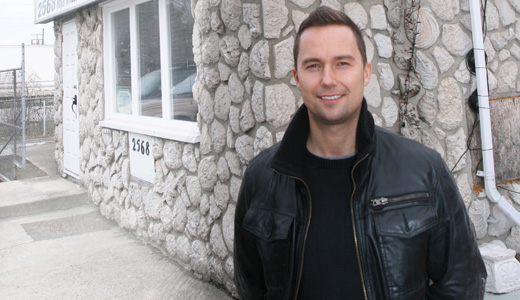




A tractor-trailer filled with hazardous materials could be terrorists' next weapon of mass destruction, according to a panel of terrorism experts gathered recently in Concord, NC. And the group encouraged trucking executives to play the front line of defense in guarding against such an attack.
The FBI's Craig Moringiello said terrorism is changing. Future attacks are more likely to be conducted by one person, "a lone wolf," he said, such as the Fort Hood shooter, the Christmas underwear bomber and the Times Square bomber.
"We need your industry's help in identifying these lone offenders," said Moringiello.
More than 100 trucking executives attended the one-day security conference at Charlotte Motor Speedway that focused on improving ties between the government and industry leaders. The conference was hosted by Odyssey Logistics & Technology, a national company with offices in Charlotte that coordinates shipping for chemical and manufacturing companies.
The panel included experts from the FBI, Department of Homeland Security and Transportation Security Administration. Some speakers referred to truck drivers as "American road warriors" and "road patriots." They urged the executives to conduct extensive background checks on their drivers and look for unusual changes in their lifestyles, and to be aware of materials being transported to or from odd locations.
Kenneth Ward, a transportation security specialist with the Transportation Security Administration, cited the threat of a hazmat truck being driven into a major city and blown up.
He told the executives to imagine news cameras converging onto the scene, filming the devastation, interviewing witnesses, and then possibly focusing on the logo of what's left of the truck used in the attack.
"Unfortunately your name becomes synonymous with a terrorist event that you couldn't ever imagine," he said.
Moringiello noted incidents of tanker trucks being stolen and suspicious driving students seeking hazmat permits. Another speaker said five major interstates run through North Carolina, including three near Charlotte.
"Whether it's narco traffickers, human traffickers, weapons trafficking or terrorism, the trucking industry is our eyes and ears out there," said Maj. Marc Nichols, Director of Special Operations and Motor Carrier Enforcement Administration for the N.C. Highway Patrol.
One panelists pointed out how lethal a truck bomb can be, citing the 1993 attack when terrorists drove a rental van carrying a 1,500-pound bomb into the underground parking garage at the World Trade Center. The bombing killed six people and was intended to topple the buildings.
Nichols said Charlotte is popular with crime syndicates because of its central location and proximity to major highways connecting other major cities such as Atlanta and Washington, D.C.
John Kavanaugh, a former assistant director of the FBI and Department of Homeland Security, said Charlotte may not be the origin or the destination for a truck bomb but one could be transported through the area.
"Everyone has to be vigilant," he said. "You don't know what the target will be."
www.charlotteobserver.com
| Privacy Policy | Terms of Use | Advertise with Us | |
|
Mail Address: DorogaRoad. 321-330 Princess Royal Dr., Mississauga, ON, L5B 4P7, Canada Tel: 416.500.5950 • E-mail: [email protected] |
© 2007-2026 DorogaRoad.com. All rights reserved. © 1998-2026 Powered by AdSprouts solutions for publishers |